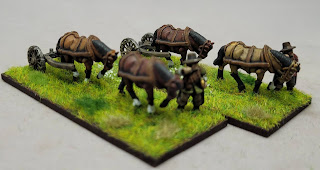The Queen's Sconce
The fact that I am planning a sconce has got me thinking, and ultimately revisiting the Queen's Sconce in Newark. I've already written about having a grand day out in Newark but a more in depth look at The Queen's Sconce is required.
Newark had considerable defences built to protect the town and the strategic route North, some of these defences dating back to Henry VIII's time when he fortified the town during the rebellion against his religious reforms called the Pilgrimage of Grace.
The strategic value of Newark explains the building of castles on the site since the eleventh century. Today Newark castle remains albeit in a slighted state, as do twelve scheduled ancient monuments, all of which relate to the defensive earthworks of the Civil Wars. The King's Sconce existed until the 1880s, the site is now a housing development. The larger Edinburgh Sconce (an offensive earthwork) has been lost also.
The Queen's Sconce, and remaining earthworks "represent the most complete example of Civil War siegeworks in England"*. We are particularly fortunate that contemporary plans were drawn by both Royalist and Parliamentarian sides, so we know what it looked like in some detail.
What is there today?
The Sconce is located in The Queen's Sconce and Devon park, there is on-site parking with a nominal charge. There is also a pretty good café and toilets. the site is wheelchair accessible, including access onto the Sconce.
The Sconce is big. You don't actually realise how deep the ditches, and how tall the banks actually are until you stand next to them. It is a real effort trying to walk up these banks today, it would I imagine, be even more formidable trying to get up them whilst being shot at (and that's not mentioning the pitfalls, sharpened wooden spikes etc).
Newark had considerable defences built to protect the town and the strategic route North, some of these defences dating back to Henry VIII's time when he fortified the town during the rebellion against his religious reforms called the Pilgrimage of Grace.
The strategic value of Newark explains the building of castles on the site since the eleventh century. Today Newark castle remains albeit in a slighted state, as do twelve scheduled ancient monuments, all of which relate to the defensive earthworks of the Civil Wars. The King's Sconce existed until the 1880s, the site is now a housing development. The larger Edinburgh Sconce (an offensive earthwork) has been lost also.
Newark's fortifications: the Queen's Sconce is central and to the left of the town
The Queen's Sconce, and remaining earthworks "represent the most complete example of Civil War siegeworks in England"*. We are particularly fortunate that contemporary plans were drawn by both Royalist and Parliamentarian sides, so we know what it looked like in some detail.
Model of the Sconce at National Civil War Centre, clearly showing the pitfalls
What is there today?
The Sconce is located in The Queen's Sconce and Devon park, there is on-site parking with a nominal charge. There is also a pretty good café and toilets. the site is wheelchair accessible, including access onto the Sconce.
The Sconce is big. You don't actually realise how deep the ditches, and how tall the banks actually are until you stand next to them. It is a real effort trying to walk up these banks today, it would I imagine, be even more formidable trying to get up them whilst being shot at (and that's not mentioning the pitfalls, sharpened wooden spikes etc).
View of the ditch and bank on Newark side of the Sconce. The roof line in the background is a bungalow that is built roughly on the same level as where I was standing
Plaque located on the top of the Sconce showing Newark's defences
Obligatory artist's impression of a cannon
Panoramic view of the top of the Sconce, note car on left giving a sense of scale
* University of Sheffield, Archaeology DepartmentIf you enjoyed reading this, or any of the other posts, please consider supporting the blog.
Thanks.
















Hi, stumbled across your post. Really interesting map. I am interested in Star Forts, and this map makes the Newark Castle look like a star fort. Really interesting. Shame the other kings Sconce has gone. Thank you
ReplyDeleteYou can't beat a good star fort to be honest. Newark Castle is a little square next to the bridge in Newark (to the right of the market cross). The defences surrounding the town certainly have a look a star fort about them.
Delete